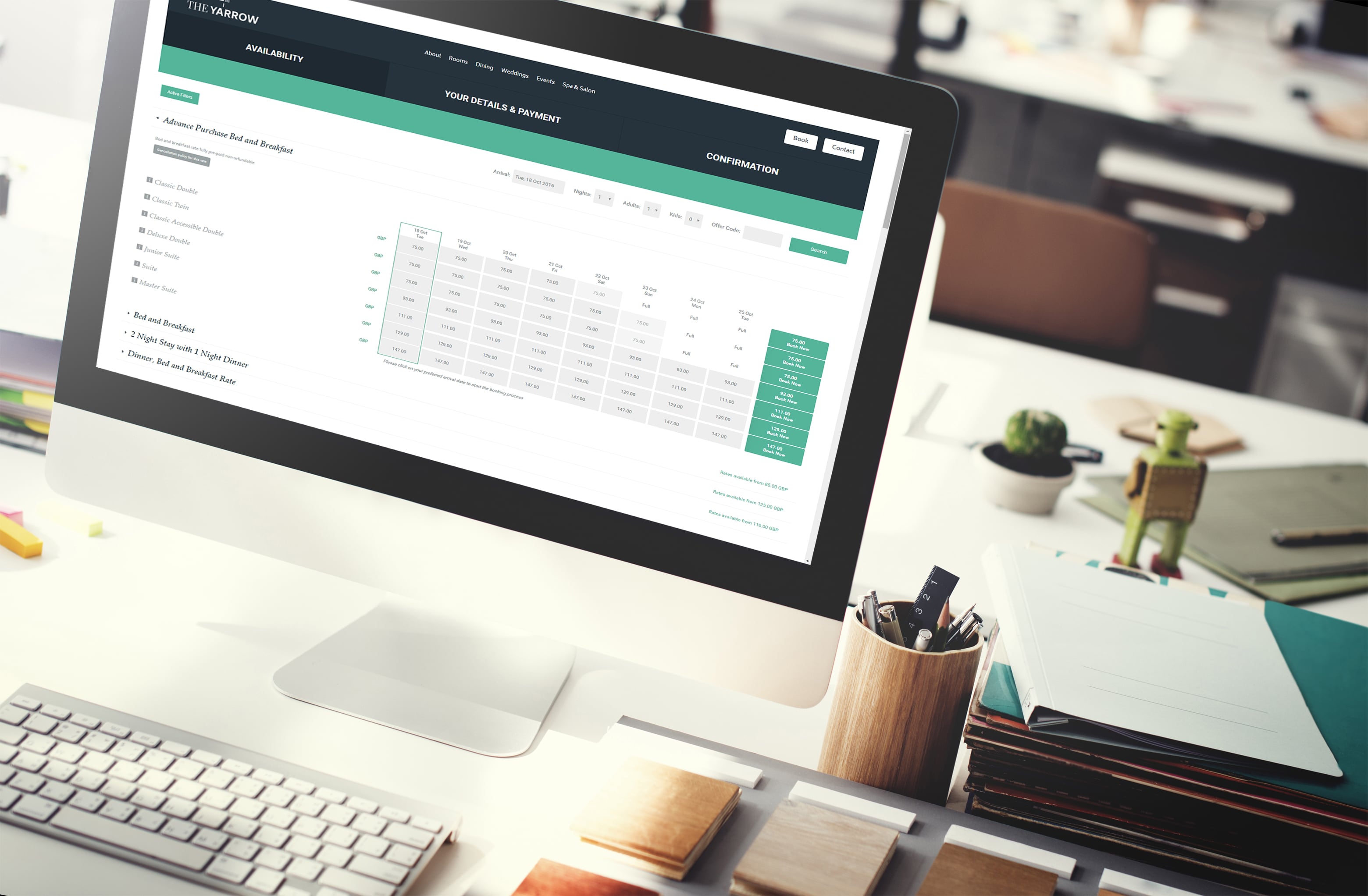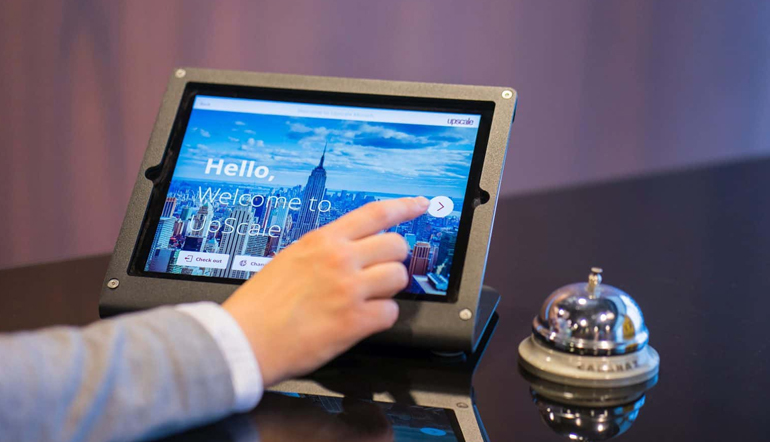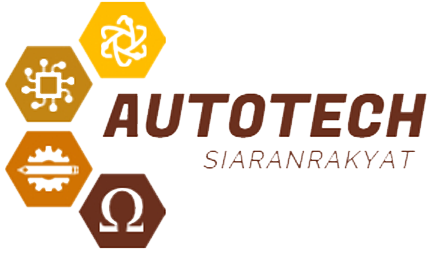Hospitality software solutions are revolutionizing the hospitality industry, offering a range of tools to enhance efficiency, improve guest experiences, and boost profitability. From property management systems (PMS) to point-of-sale (POS) systems and revenue management systems (RMS), these technologies are transforming how hotels, restaurants, and other hospitality businesses operate. This exploration delves into the diverse landscape of hospitality software, examining its features, benefits, challenges, and future trends.
The market for hospitality software is experiencing significant growth, driven by increasing demand for automation, data-driven decision-making, and enhanced guest engagement. Key players are constantly innovating, introducing new features and integrations to meet the evolving needs of the industry. This report provides a comprehensive overview of this dynamic market, analyzing various software types, implementation strategies, and the crucial role of data security and privacy.
Market Overview of Hospitality Software
The hospitality software market is experiencing significant growth, driven by the increasing need for automation, efficiency, and enhanced guest experiences across various segments of the industry. This market encompasses a wide range of solutions designed to streamline operations, improve revenue management, and foster better customer relationships within hotels, restaurants, spas, and other hospitality establishments.
The global hospitality software market is a multi-billion dollar industry, exhibiting a robust compound annual growth rate (CAGR). This growth is fueled by factors such as the rising adoption of cloud-based solutions, increasing demand for integrated systems, and the growing popularity of mobile-first technologies within the sector. The market’s expansion is further propelled by the ongoing digital transformation within the hospitality industry and the increasing focus on data-driven decision-making.
Market Size and Growth Potential
The hospitality software market is projected to experience substantial growth in the coming years. Market research firms estimate the market size to be in the billions of dollars, with projections indicating continued expansion. This growth is attributed to factors like the increasing adoption of technology by small and medium-sized enterprises (SMEs) in the hospitality sector, coupled with the ongoing digital transformation within large hotel chains and hospitality conglomerates. For example, the increasing adoption of property management systems (PMS) by independent hotels, previously reliant on manual processes, is significantly contributing to market expansion. The potential for growth remains significant, particularly in emerging markets with a burgeoning tourism sector.
Key Players and Market Share
Several major players dominate the hospitality software market, each offering a suite of solutions tailored to specific segments. While precise market share figures vary depending on the source and the specific segment being analyzed, some prominent players include Oracle Hospitality, Infor, Micros (now part of Oracle), and Amadeus. These companies often hold significant market share due to their established brand reputation, extensive product portfolios, and strong customer bases. Smaller, specialized companies also play a crucial role, focusing on niche areas such as revenue management or guest engagement. The competitive landscape is dynamic, with ongoing mergers, acquisitions, and the emergence of innovative startups.
Competitive Landscape and Emerging Trends
The hospitality software market is highly competitive, characterized by both established players and emerging innovative companies. Key trends shaping the competitive landscape include the increasing adoption of cloud-based solutions, the integration of artificial intelligence (AI) and machine learning (ML) for tasks like predictive analytics and personalized guest experiences, and the growing importance of data security and privacy. The rise of mobile-first technologies and the integration of various systems (e.g., PMS, CRM, POS) are also significant factors influencing the competitive dynamics. Companies are constantly innovating to offer better integration, user experience, and data-driven insights. For instance, the integration of AI-powered chatbots for guest service is becoming increasingly prevalent.
Market Segmentation
The hospitality software market is segmented into various categories based on the type of establishment and the specific software solutions offered. Major segments include:
- Hotel Property Management Systems (PMS): These systems manage reservations, guest profiles, housekeeping, and other operational aspects of hotels.
- Restaurant Management Systems (RMS): These systems handle point-of-sale (POS) transactions, inventory management, table reservations, and employee scheduling for restaurants and bars.
- Spa and Wellness Software: These solutions manage appointments, inventory, client records, and other aspects of spa and wellness operations.
- Revenue Management Systems (RMS): These systems optimize pricing and inventory to maximize revenue.
- Customer Relationship Management (CRM) Systems: These systems manage guest interactions, preferences, and loyalty programs.
Each segment has its own specific needs and requirements, leading to specialized software solutions designed to address those needs effectively. The market is characterized by a mix of integrated solutions and specialized offerings catering to different segments and sizes of hospitality businesses.
Key Features and Functionalities: Hospitality Software Solutions

Modern hospitality software solutions offer a wide array of features designed to streamline operations and enhance the guest experience. These systems go beyond simple reservation management, integrating various aspects of the business into a unified platform. This integration fosters efficiency, improves communication, and ultimately leads to increased profitability.
A comprehensive hospitality software solution should include several key modules to effectively manage all facets of a hospitality business. These modules work together seamlessly, providing a holistic view of operations and facilitating data-driven decision-making.
Essential Features of Hospitality Software
Effective hospitality software incorporates a range of features to optimize various operational aspects. Centralized reservation management, encompassing online booking, channel management, and revenue management, is paramount. Property management capabilities, including guest profiles, room assignments, and housekeeping management, are also critical. Point-of-sale (POS) systems for seamless transactions, integrated payment processing, and reporting functionalities contribute to financial control. Furthermore, customer relationship management (CRM) tools allow for personalized guest interactions and targeted marketing campaigns. Finally, robust reporting and analytics dashboards provide valuable insights into operational performance and areas for improvement.
Benefits of Integrating Different Software Modules
Integrating different software modules within a hospitality business yields significant advantages. Data silos are eliminated, leading to a unified view of guest information and operational performance. This integrated approach facilitates smoother workflows, reduces manual data entry, and minimizes the risk of errors. For example, a seamless integration between the reservation system and the housekeeping module automatically updates room status and alerts housekeeping staff about room cleaning requirements, reducing delays and improving service. Similarly, integration with the POS system provides real-time data on revenue and sales trends, informing pricing strategies and inventory management. The overall impact is a more efficient and streamlined operation, allowing staff to focus on guest service rather than administrative tasks.
Improving Operational Efficiency and Guest Experience
Hospitality software solutions directly improve operational efficiency and guest experience. Automated processes, such as automated check-in/check-out, reduce staff workload and waiting times for guests. Real-time data access empowers staff to make informed decisions quickly, addressing guest requests efficiently. Personalized service, enabled by integrated CRM data, enhances guest satisfaction. For instance, the system might proactively inform staff about a guest’s preferences based on their past stays, enabling personalized service and enhancing their overall experience. Efficient management of resources, such as rooms and staff, minimizes operational costs and maximizes revenue. Data-driven insights from reporting and analytics modules help identify areas for improvement and optimize business strategies, leading to enhanced profitability and guest loyalty.
Guest Journey Using a Hotel Management System
The following illustrates a typical guest journey using a hotel management system:
Imagine a guest named John Doe. His journey begins with an online search and booking via a booking engine connected to the hotel’s management system. The system automatically registers John’s details and preferences. Upon arrival, John checks in quickly via a self-service kiosk or through expedited check-in at the front desk, facilitated by the system pre-populating his details. During his stay, John can use the hotel’s app (integrated with the hotel’s management system) to order room service, request amenities, and communicate with staff. Upon checkout, John’s bill is automatically generated, and he receives a digital receipt. Post-stay, John receives a satisfaction survey via email, allowing the hotel to collect feedback and improve future services. The entire process is streamlined and efficient thanks to the integrated functionalities of the hotel management system.
Hospitality software solutions are constantly evolving to meet the needs of a dynamic industry. Improving customer service is a key focus, and this is where leveraging the power of AI becomes crucial. One avenue to explore is utilizing readily available resources such as Open-source AI tools , which can help personalize guest experiences and optimize operational efficiency.
Ultimately, the integration of such tools can significantly enhance the overall guest journey and streamline processes within hospitality businesses.
Benefits and Challenges of Implementation

Implementing hospitality software offers significant advantages, but also presents potential hurdles. Understanding both the benefits and challenges is crucial for a successful transition and maximizing return on investment. This section details the advantages across various business sizes, identifies potential risks, and provides strategies for mitigating those risks and ensuring a smooth implementation.
Advantages of Hospitality Software Adoption
The benefits of adopting hospitality software solutions are numerous and vary depending on the size and type of hospitality business. Smaller establishments might focus on streamlining operations and improving efficiency, while larger enterprises might prioritize data analytics and guest experience enhancement. Regardless of size, improved efficiency and increased revenue are common goals.
- Increased Efficiency: Automation of tasks such as reservations, check-in/check-out, and billing frees up staff time for more customer-focused activities, leading to improved service and potentially higher customer satisfaction.
- Enhanced Revenue Generation: Features like revenue management tools allow businesses to optimize pricing strategies, increasing occupancy rates and maximizing revenue. Dynamic pricing, based on demand and seasonality, is a key example.
- Improved Customer Experience: Personalized services, such as customized welcome messages or tailored recommendations, are made possible through data collected and analyzed by the software. This contributes to customer loyalty and positive reviews.
- Streamlined Operations: Centralized management of reservations, guest information, and staff schedules simplifies daily operations, reduces errors, and improves communication within the organization.
- Better Data Analysis: Software provides valuable data insights into business performance, enabling informed decision-making regarding marketing, staffing, and operational strategies. For example, analyzing booking patterns can inform staffing decisions during peak seasons.
Challenges and Risks of Software Implementation
Implementing new software systems involves various challenges and risks. These range from technical issues to staff training and potential disruptions to existing workflows. Addressing these challenges proactively is key to a successful implementation.
- Cost of Implementation: The initial investment in software licenses, hardware upgrades, and staff training can be significant, especially for smaller businesses. Careful budgeting and consideration of long-term ROI are crucial.
- Data Migration: Transferring existing data from legacy systems to the new software can be complex and time-consuming. Data loss or corruption is a major risk that requires careful planning and execution.
- Staff Training and Adoption: Employees need adequate training to effectively use the new software. Resistance to change and insufficient training can hinder adoption and reduce the benefits of the new system.
- Integration with Existing Systems: If the hospitality business uses other software systems, ensuring seamless integration with the new software is essential. Compatibility issues can lead to data silos and operational inefficiencies.
- Technical Issues: Unexpected technical problems, such as software bugs or hardware malfunctions, can disrupt operations and cause delays. A robust support system from the software vendor is vital.
Strategies for Mitigating Risks and Overcoming Challenges
Proactive planning and risk management are critical for successful software implementation. A phased approach, thorough testing, and ongoing support are key components of a successful strategy.
- Thorough Planning and Needs Assessment: Before selecting software, conduct a thorough assessment of the business’s needs and requirements. This ensures that the chosen software aligns with the business’s goals and objectives.
- Phased Implementation: Implement the software in phases, starting with a pilot program in a limited area before rolling it out across the entire organization. This allows for early identification and resolution of issues.
- Comprehensive Staff Training: Provide comprehensive training to all staff members who will be using the new software. This should include hands-on training and ongoing support.
- Data Backup and Recovery Plan: Develop a robust data backup and recovery plan to mitigate the risk of data loss or corruption during migration.
- Vendor Support and Maintenance: Select a vendor that provides reliable support and maintenance services. This ensures that any technical issues can be addressed promptly.
Step-by-Step Guide for Successful Software Implementation
A structured approach to implementation minimizes disruption and maximizes benefits. This involves clear phases and continuous monitoring.
- Needs Assessment and Software Selection: Define specific requirements, research available solutions, and choose software that best fits the business needs.
- Planning and Project Management: Develop a detailed implementation plan, including timelines, responsibilities, and resources.
- Data Migration: Develop a data migration strategy, including data cleansing, validation, and testing.
- System Testing and User Acceptance Testing (UAT): Conduct thorough testing to identify and resolve any bugs or issues before the full launch.
- Staff Training and Go-Live: Provide comprehensive training and support to staff, and launch the software in a controlled manner.
- Post-Implementation Monitoring and Support: Monitor system performance, gather user feedback, and provide ongoing support to address any issues.
Integration with Other Systems

Seamless integration with other business systems is crucial for maximizing the value of hospitality software. A fully integrated system streamlines operations, improves data accuracy, and ultimately enhances the guest experience. Effective integration avoids data silos and allows for a holistic view of the business, leading to more informed decision-making.
Integrating hospitality software with other systems such as property management systems (PMS), point-of-sale (POS) systems, accounting software, customer relationship management (CRM) systems, and marketing automation platforms offers significant advantages. This interconnectedness facilitates the smooth flow of information, automating tasks, and reducing manual data entry, which in turn minimizes errors and saves time.
API Integrations and Data Exchange
Application Programming Interfaces (APIs) are the backbone of successful integrations. They enable different software platforms to communicate and exchange data automatically, eliminating the need for manual data transfer. This real-time data exchange ensures consistency across all systems, providing a unified view of guest information, reservations, transactions, and marketing campaigns. For example, a reservation made through a booking website can automatically update the PMS, POS, and CRM systems, ensuring all departments are aware of the guest’s arrival and preferences. This automated process prevents overbooking, improves guest service, and reduces administrative overhead.
Examples of Successful Integrations and Their Impact
Consider a hotel chain integrating its PMS with its CRM system. Guest preferences, past stays, and loyalty program information are automatically compiled and made available to staff upon check-in, allowing for personalized service. This improves customer satisfaction and encourages repeat bookings. Similarly, integrating the PMS with the accounting software automates revenue reporting and simplifies financial reconciliation, freeing up staff time for other tasks. A restaurant integrating its POS system with its inventory management system can accurately track food costs and prevent stockouts, optimizing operations and reducing waste. These examples demonstrate the tangible impact of effective integration on efficiency and profitability.
Data Integration and Enhanced Decision-Making, Hospitality software solutions
Data integration provides a comprehensive view of business operations, facilitating data-driven decision-making. By consolidating data from various systems, businesses can identify trends, patterns, and areas for improvement. For instance, analyzing data from the PMS, POS, and CRM systems can reveal peak booking periods, popular menu items, and customer preferences, enabling targeted marketing campaigns and optimized resource allocation. This data-driven approach allows businesses to make more informed decisions, improve operational efficiency, and enhance profitability. Real-time dashboards and reporting tools further leverage integrated data, providing managers with up-to-the-minute insights into key performance indicators (KPIs) and operational metrics. This allows for quick identification and resolution of issues, leading to improved guest satisfaction and operational efficiency.
In conclusion, the adoption of sophisticated hospitality software solutions is no longer a luxury but a necessity for businesses seeking to thrive in today’s competitive landscape. By carefully evaluating their needs, selecting the right software, and implementing it effectively, hospitality businesses can unlock significant operational efficiencies, enhance guest satisfaction, and ultimately, achieve a substantial return on investment. The future of hospitality is undeniably intertwined with the continued evolution and integration of innovative technology.
Hospitality software solutions are constantly evolving to meet the demands of a competitive market. A key element of this evolution is the integration of artificial intelligence, leveraging the advantages outlined in this helpful article on Benefits of using AI tools. Ultimately, this integration leads to improved efficiency, personalized guest experiences, and better resource management within the hospitality sector.
